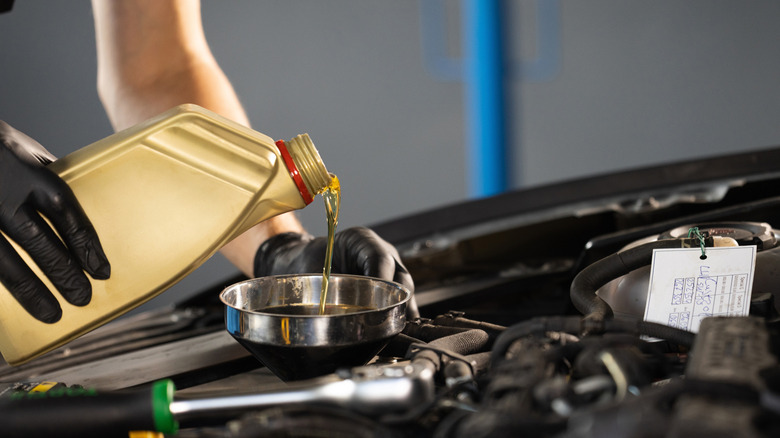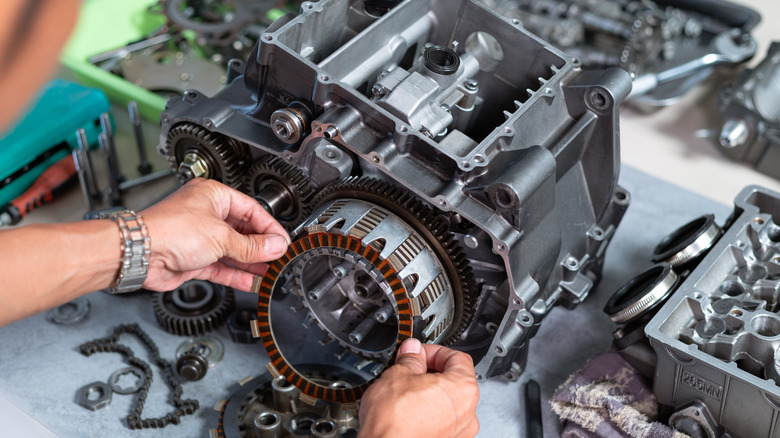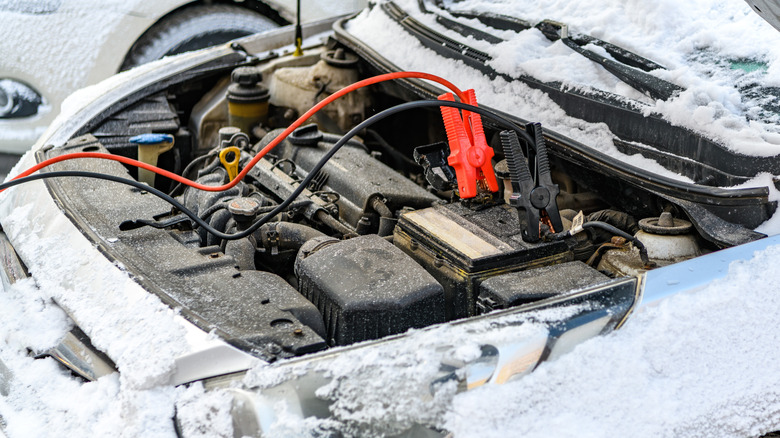These 4 Common Mistakes Could Ruin Your Engine
In today's era of engineering and scientific advancement, modern car engines have come a long way from their predecessors, and are more reliable than ever before. However, they're certainly not indestructible — especially when subjected to the bad habits of drivers. While most car owners believe they are taking good care of their vehicles, even a few small mistakes can lead to rather expensive repairs or outright engine failure over time.
Unfortunately, there are many damaging behaviors that seem genuinely harmless on the surface, but their compounding effects can wreak havoc under the hood. Something as simple as skipping an oil change or letting your engine idle too long can wear away crucial engine components. Failing to do routine vehicle maintenance is one of the fastest ways to cut down the lifespan of your engine.
Whether you're an everyday commuter or you barely drive your car, these common mistakes are worth looking into before they cause serious issues. Below, we break down a few bad habits that could be destroying your engine without you even realizing it — and the necessary actions to avoid them.
A heavy keychain and your foot on the clutch could spell disaster in the long term
As much as we hate to admit it, our bad habits in the driver's seat can be cause of some serious engine damage. For example, something that seems perfectly harmless — such as hanging a weighty keychain from your keys when inserted into the ignition: This is actually a silent killer due to the unnecessary strain the extra weight has on the ignition switch over time. The added weight may eventually result in ignition faults, misfires, or even stall-outs — all of which can be a catalyst for more serious engine problems.
Another habit that quietly wears down your powertrain is riding the clutch, even accidentally. It's a common mistake for drivers to keep their foot on the clutch pedal while driving, resulting in the clutch disc to engage ever so slightly when it's not supposed to. Consequently, this leads to premature clutch wear over time, which can lead to serious issues for both the transmission and engine if not attended to.
Both of these mistakes are easy to correct, but are often overlooked. Getting rid of the heavy keychain and implementing good manual driving habits can help save you from hefty repair bills in the future.
Revving a cold engine and excessive idling do more harm than good
Another silent engine killer? Revving the engine before it has time to properly warm up. Many people might believe that it is good to rev your car's engine upon starting up, as it's a way to "get things going" when it's cold, but this is a common misconception. Revving a cold engine puts stress on internal components that have yet to reach their optimal operating temperature. Revving a cold engine can increase wear on pistons, bearings, and the crankshaft, which are all critical areas for a vehicles performance and longevity.
Similarly, excessive idling may seem fairly benign – especially in cold weather — but it poses a far greater threat than many realize. Prolonged idling leads to a buildup of water vapor in the engine, which can result in the oil being contaminated and therefore reducing its effectiveness and lifespan. In a video from longtime mechanic and YouTuber Scotty Kilmer, he warns that the shortened oil life will reduce the protection for vital engine parts.
All in all, these habits can stealthily destroy an engine over time. For drivers wanting to take better care of their vehicles and extend their engine's lifespan, taking the time address these common mistakes will go a long way.


